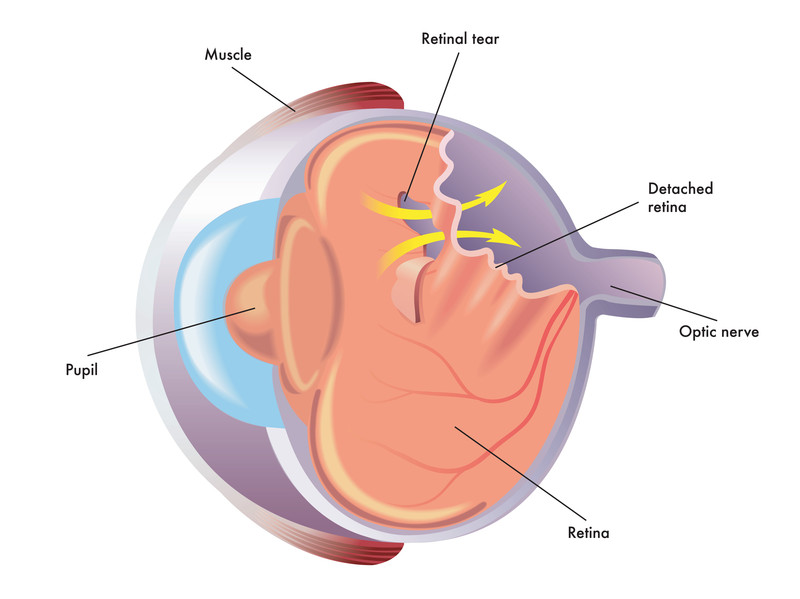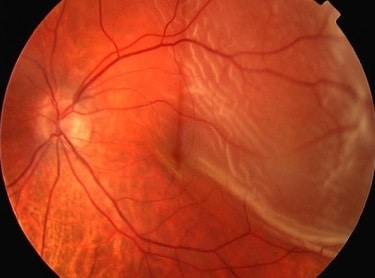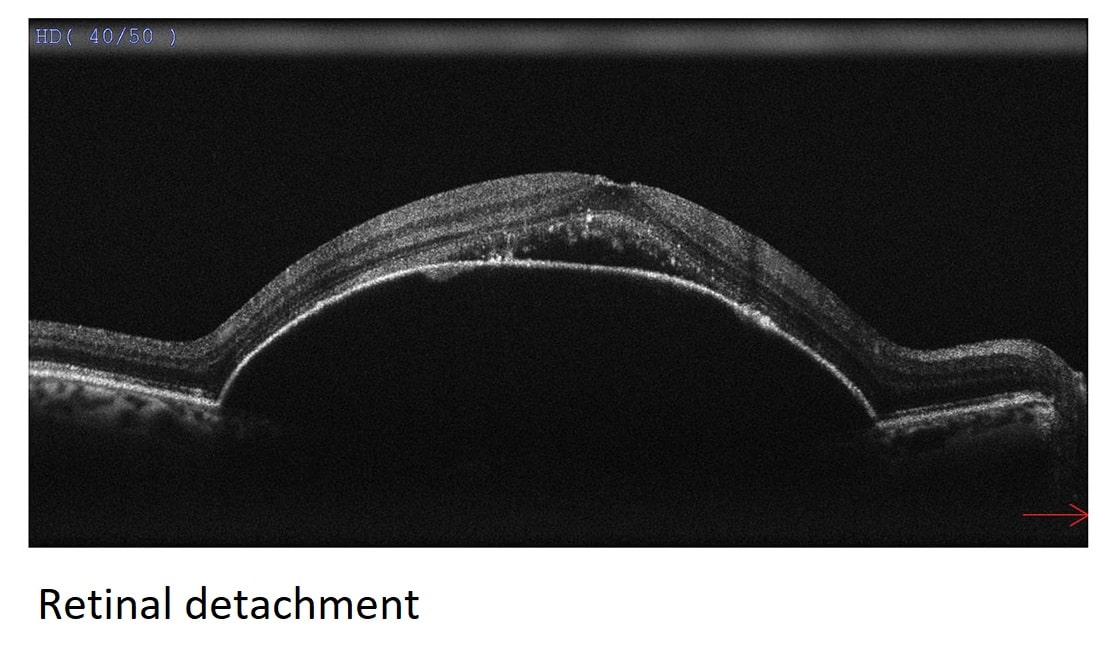Floaters & Flashes
If you have recently experienced a sudden increase in size or number of floaters or flashing lights,
please book an appointment as soon as possible.
Floaters
Floaters look like little specks of debris in your field of vision, which are bits of cells and gel inside the vitreous jelly in your eyes. They can be momentarily confused with dust or tiny insects floating across in front of the eye.
The characteristics of floaters can include:
- They can be different shapes, such as tiny spots, flecks, clear little bubbles, threads or cobwebs.
- They are particularly visible when looking at a light-coloured area in the morning, such as a blank wall or blue sky.
- The floaters move as the eyes move, often with a slight lag.
- Large floaters can present as diminished areas of vision, but this is very rare.

Generally, everyone experiences them from time to time and they have no ill effects. However, if they start becoming visible in every background, suddenly increase in number or size and are accompanied by any loss of vision, it is vital that immediate medical advice is sought. This could be an early sign of a retinal tear, hole, or detachment.
What causes floaters?
- With age, floaters tend to increase as our vitreous jelly starts to shrink and pull away from the retina (back of the eye). This condition is called posterior vitreous detachment. At first, this can be irritating. Eventually, the brain can become accustomed to the floaters and may decide not to ‘inform’ you of their presence.
- Retinal tear happens when a portion of the vitreous pulls on the retina and manages to tear the retina. Without treatment, this could lead to severe vision loss from retinal detachment.
Click here to find out about Retinal Tears and Detachment.

- Surgeries or medical injections to the eye can cause floaters from the air bubbles of the medication or surgical procedure.
- Inflammation inside the eye (posterior uveitis) can cause debris from the inflammatory process to enter the vitreous jelly and cause floaters.
- Bleeding inside the eye from conditions such as diabetes, hypertension and injuries can cause the blood cells to appear as floaters.
Flashes
Flashes can appear like flashing lights or lightning streaks in your vision. You may notice them in the presence of floaters. It tends to happen as the vitreous jelly pulls or rubs on the retina.
Flashes without signs of retinal tears or holes can persist for weeks or even months.

What causes flashes?
- Posterior vitreous detachment is the most common cause of flashes and floaters.
- Retinal tears / holes
- Retinal scar
Risk factors
- Age
- Short-sightedness / Myopia
- Trauma to the eye
- Complicated eye surgery
- Diabetes
- Hypertension
- Inflammation inside the eye
Early detection
It is important to seek medical advice if you experience increasing amount of floaters, flashing lights in your vision and/or loss of vision to rule out retinal tears. If this is the case, laser treatment or surgery may be required to seal any holes in the retina or surgically re-attach the retina to your eye.
The earlier a diagnosis is made, the earlier steps can be taken to implement appropriate treatment. Delayed treatment can have a severe impact on vision.
We are equipped with state of the art instruments on top of the standard eye examination procedures:
- Dilated retinal examination uses diagnostic eye drops to increase the size of the pupil and allows the optometrists to have a wider view of the retina.
- Digital retinal photographs provide an image of the retina.

- OCT imaging is a non-invasive ultrasound scan which may be able to assist in identifying any fluid build up under the retinal that increases the risk of retinal detachment.

Treatment options
Our role as a therapeutically qualified optometrist is to determine whether the flashes or floaters are:
- The non-sight threatening shadow of the debris in your eye, or
- Retinal tear, hole or detachment.
Therefore when you experience any symptoms, it’s important to book an appointment with us as soon as possible.
- There is currently no medication, eye drops or supplements that reduce flashes or floaters.
- Flashes and floaters could be purely due to posterior vitreous detachment (no retinal tears or breaks) then generally no treatment is required. Although it may take some months to settle.
- If there are any tears or breaks present, we will refer to an ophthalmologist for treatment. If the condition is caught early enough, treatment may just require some simple laser treatment – which generally only takes a few minutes. However for more severe cases, treatment may require surgical intervention.